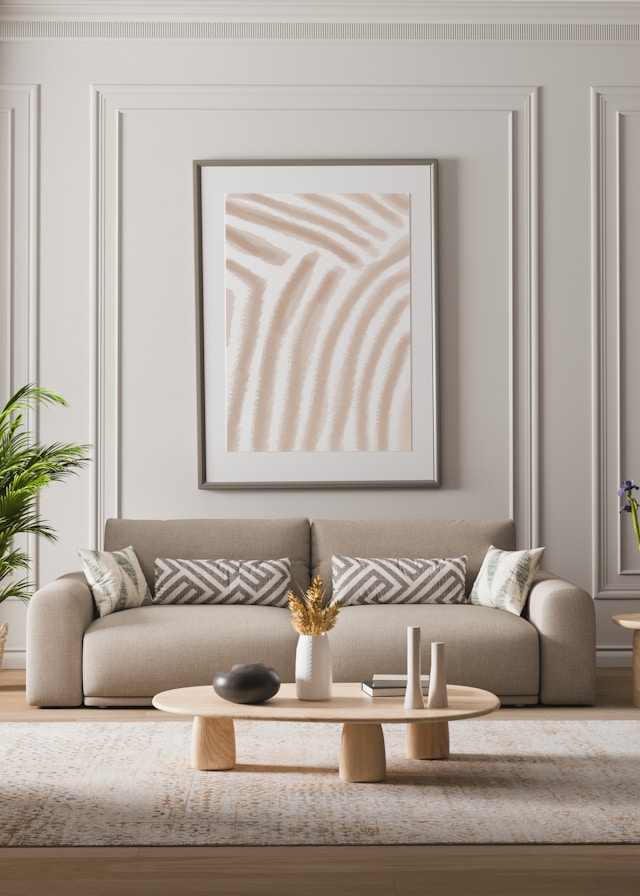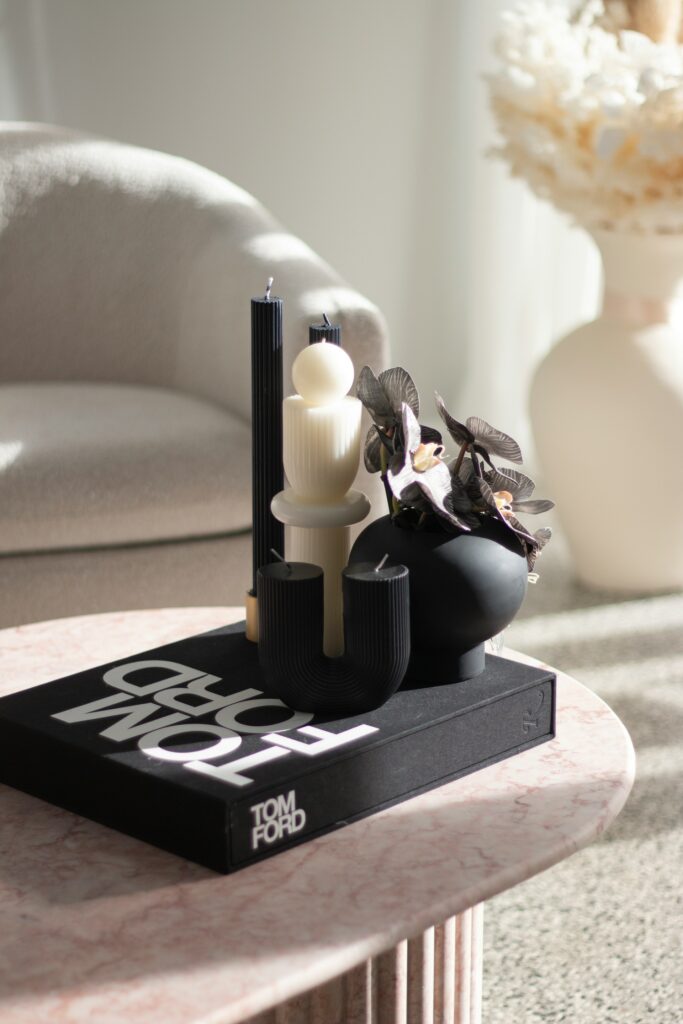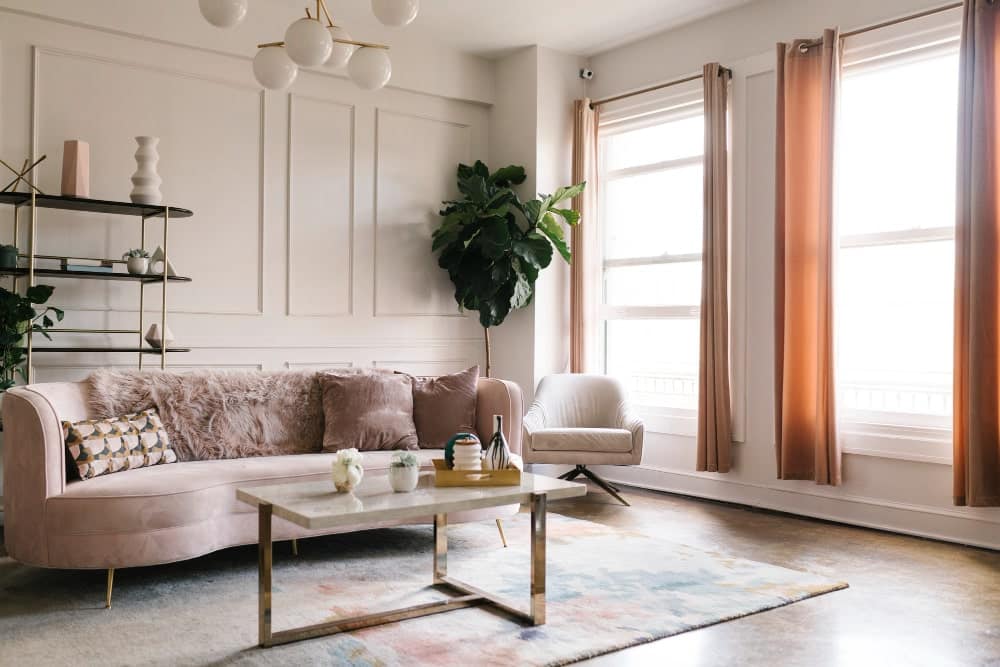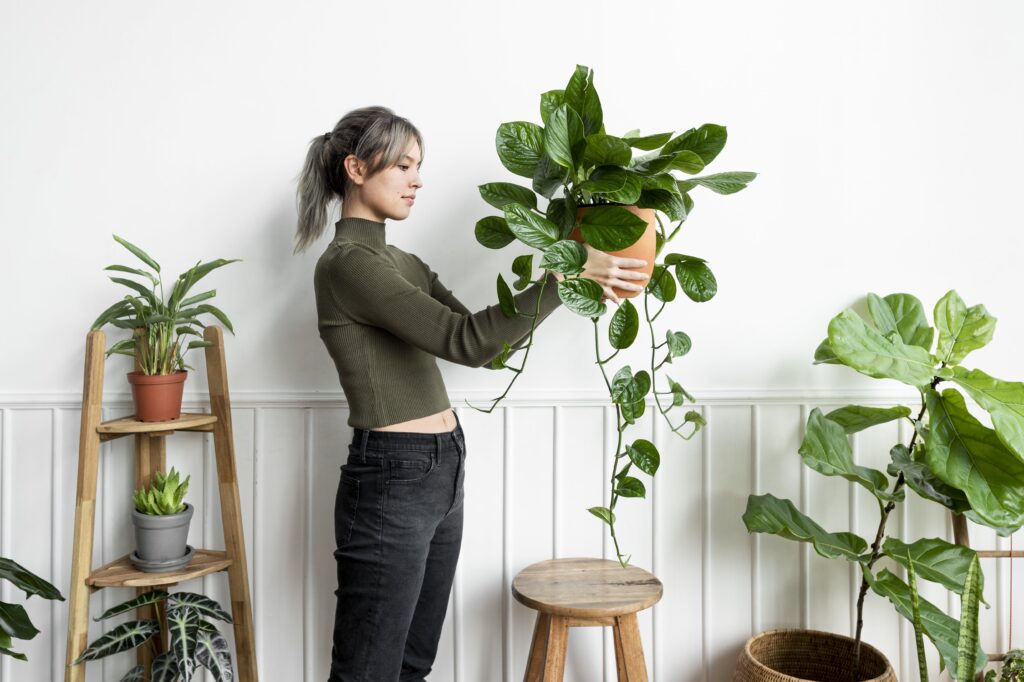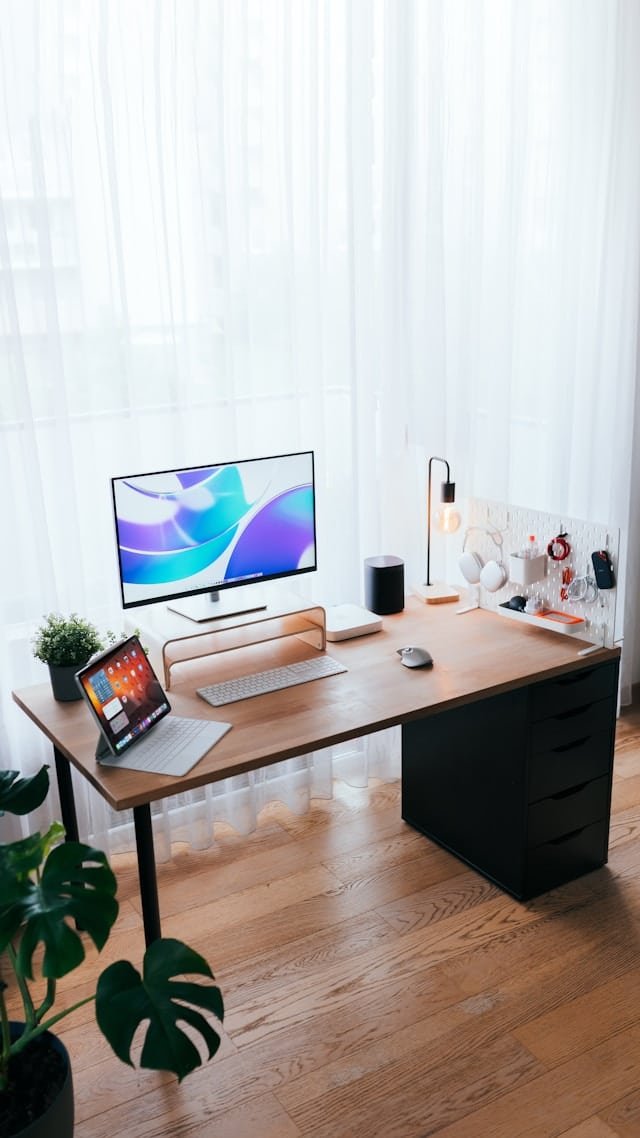21 Best Ideas Small Couches for Small Spaces That You Should Know
This is your ultimate guide to small couches for small spaces.
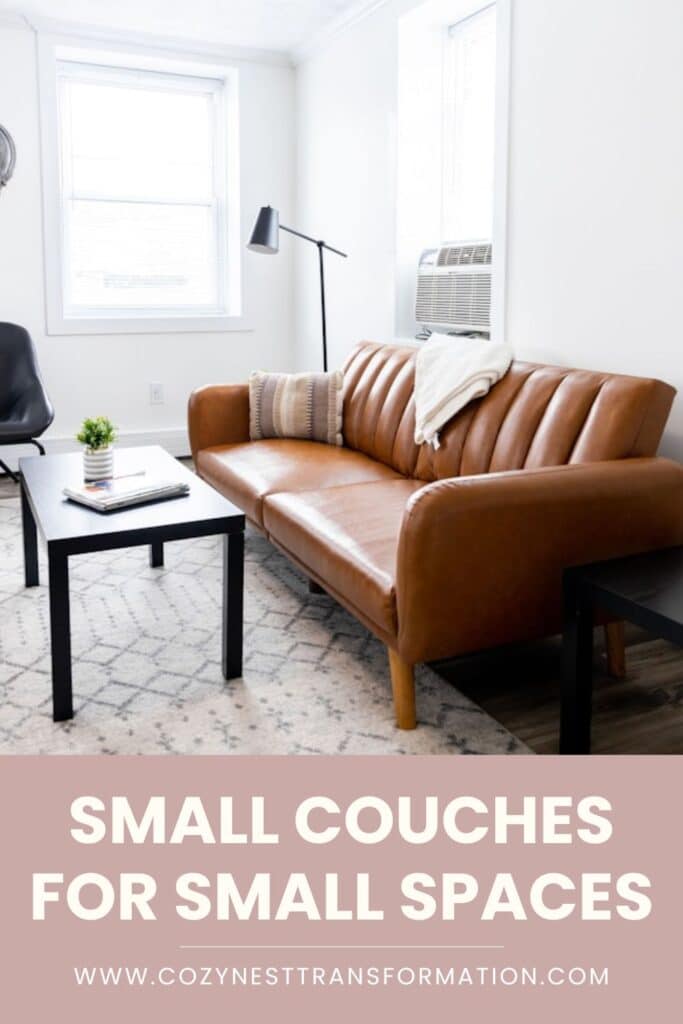
If you’re in a studio apartment, a one-bedroom, or any home where every square foot is precious, you know the frustration: finding a couch that’s comfortable for Netflix nights, stylish enough to impress guests, and compact enough to actually fit into your space (and leave room to walk).
The good news? The perfect small couch does exist.
The challenge isn’t just finding a small couch—it’s about finding the right small couch.
One that doesn’t make your space feel cramped, doesn’t sacrifice comfort for size, and actually enhances your home’s flow and function.
That’s where these 21 smart ideas come in (obviously, small couches for small spaces)! Consider this your ultimate guide to choosing a small couch that works as hard as you do.
I’ve broken these ideas into categories that cover design aesthetics, functionality, placement strategies, and practical shopping tips.
Whether you’re furnishing your first apartment or downsizing to a smaller space, these insights will help you make a choice you’ll love for years to come.
The Essential Criteria for Small-Space Couches
Before we dive into specific couch styles, let’s talk about what makes a couch truly “smart” for a small room.
Not all compact couches are created the same way, so understanding these key criteria will help you make the best choice for your living room.
Size and Proportion: The Importance of Scale
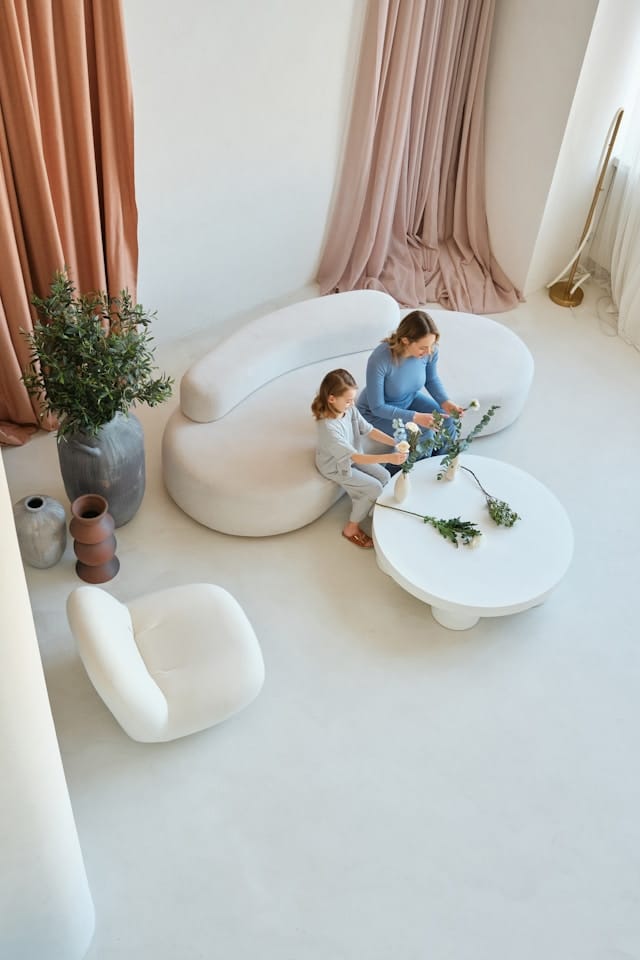
I have seen over the years of experience that the biggest mistake people make when furnishing a small living room is choosing furniture that’s too large for the space.
Let’s start by understanding the difference between apartment-sized couches and loveseats.
Sofa Type | Range (Width) |
|---|---|
Apartment-sized sofas | 68 and 80 inches |
Standard sofas | 90 inches or more |
Loveseats | 48 to 72 inches (standard is often 52-64 inches) |
For many small spaces, a loveseat or an apartment-sized sofa is the sweet spot.
Pay attention to the arms and back height as well (essential).
Lean more towards the slim arms and low-profile backs because they create a more streamlined silhouette, and won’t visually dominate your room.
Also, sleek track arms and lower backs maintain an airy feel.
On the other hand, bulky rolled arms and tall backs can make a small couch feel massive.
Multi-Functionality: Furniture That Does More
I believe that in a small space, every piece of furniture should earn its space.
That’s why the best small couches don’t just provide seating—they need to serve multifunctionally.
For example,
- They offer hidden storage compartments for blankets and throw pillows
- Transform into guest beds,
- including built-in ottomans that can serve as coffee tables
Because clients always demand more storage, I believe these solutions are particularly valuable.
A couch with a lift-up seat or storage compartments in the arms provides a convenient place to stash remotes, magazines, board games, and other living room essentials that tend to create clutter.
If you’re a big fan of hosting, sofa beds and sleeper sofas are essential for overnight guests, especially if you don’t have space for a dedicated guest room.
Style and Visual Weight: Making the Room Feel Bigger
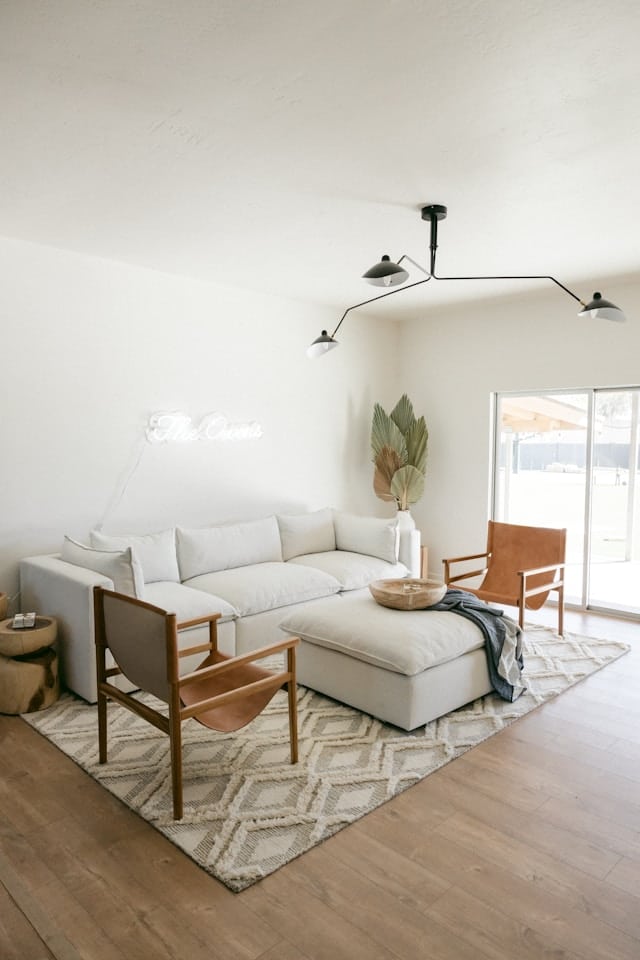
Here’s a design secret: a small couch can actually make your room look larger if you choose the right style.
I totally agree that couches with exposed legs create visual space underneath, making the floor area appear more expansive.
This is why mid-century modern designs work so well in small spaces—those tapered wooden legs create an illusion of openness.
Let’s not forget adding color and texture? Color and texture matter too.
For instance, a charcoal gray linen sofa will feel lighter than a chocolate brown velvet one, even if they’re the exact same size.
What is the 2/3 rule for couches?
Your small couches and sofas should be in a ratio of 2/3 of the size of the living room. Read the full guide here to see what experts say about Rules for Arranging a Living Room.
Small Couches for Small Spaces Ideas
Now it’s time to explore 21 specific ideas for small couches, organized by category to help you find the perfect fit for your space and lifestyle.
Multi-Functional Marvels: The Hardest Workers
1. The Sleek Sofa Bed
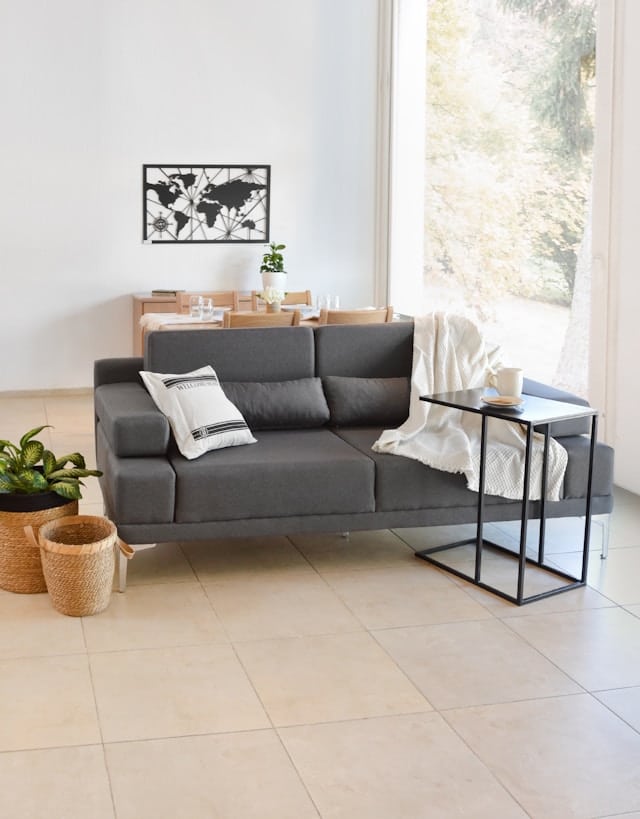
A sofa bed is the ultimate small-space solution, especially if you live in a studio apartment or frequently host overnight guests.
Before, it used to be pullout couches, and it’s kind of back-breaking (not that comfortable), but now modern sleeper sofas are way more relaxed, I would say.
What you need to look for while choosing the sleek sofa bed—look for styles with memory foam mattresses and easy-to-operate mechanisms.
The best designs don’t look like sleeper sofas at all—they’re stylish enough to be the focal point of your living room by day and comfortable enough for a good night’s sleep.
Recommended Sleek Sofa Bed:
- Sleek Sofa Bed (Couch with L‑Shaped Armrests): A stylish convertible that transforms from sofa to bed in seconds, ideal for studio apartments.
- LINDÅKRA Sleeper Sofa: Clean Scandinavian design with an easy pull-out bed mechanism for overnight guests.
- GRUNNARP Sleeper Sofa: Compact fold-down sleeper with a streamlined silhouette perfect for tight spaces.
No posts
2. The Hidden Storage Sofa
These clever couches feature lift-up seats or storage compartments built into the frame.
You can stash extra blankets, pillows, seasonal decorations, or anything else that would otherwise clutter your small space.
Some designs even include storage in the arms, perfect for keeping remotes and reading glasses within easy reach.
Top pick for Hidden Storage Sofa:
- 85-inch Large Sleeper with Hidden Storage Sofa: This oversized sleeper maximizes functionality with built-in storage compartments and a spacious sleeping surface.
- Convertible Sectional Sofa with Storage: Smart modular design with hidden storage.
- LÅNGARYD Sofa w chaise: Features a comfortable chaise lounge extension that’s perfect for stretching out while watching TV or reading, plus the neutral upholstery works with any décor style.
3. The Trundle Sofa
You may be thinking, What are trundle sofas?
Less common than traditional sleeper sofas, trundle sofas hide a second bed, ottoman, or even additional storage that slides out from underneath the main seating area.
This design is perfect if you need flexible seating arrangements—pull out the trundle for extra guests, then tuck it away when it’s not needed.
Product Recommendation for The Trundle Sofa:
- Modern Tufted Sofa Bed with Trundle: Elegant button-tufted design that sleeps two with its convenient pull-out trundle underneath.
- Daybed with Trundle Bed: Doubles your sleeping capacity without taking up extra floor space.
- Twin Size Trundle Upholstered Tufted Sofa Bed: Classic tufted upholstery meets practical twin-size sleeping and trundle functionality for sleepovers.
4. Modular and Sectional Pieces
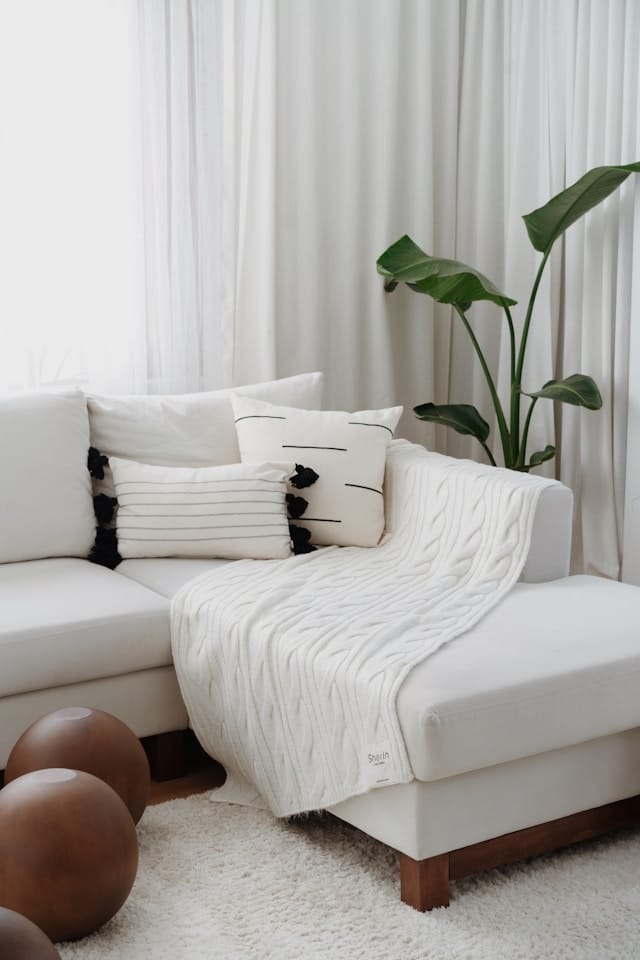
Who says you need to buy an entire sectional?
Modular couches let you purchase only the components you need. I recommend starting with a corner piece and a single seat, then adding more sections if you move to a larger space.
This flexibility makes modular couches a smart investment for anyone who might relocate frequently or whose space needs might change.
Our Top Picks for Modular and Sectional Pieces:
- JÄTTEBO 2.5-seat mod sofa w chaise: Compact modular design with chaise for maximum lounging in minimal living room space.
- JÄTTEBO 4-seat mod sofa w chaise: This larger modular configuration provides generous seating for families, while the chaise adds a luxurious stretch-out spot.
- JÄTTEBO 2.5-seat mod sofa w chaise, left/Samsala gray-beige: Versatile left-facing chaise in a sophisticated gray-beige that complements modern interiors.
Space-Saving Silhouettes: Maximizing Floor Area
5. The Armless couch for small spaces
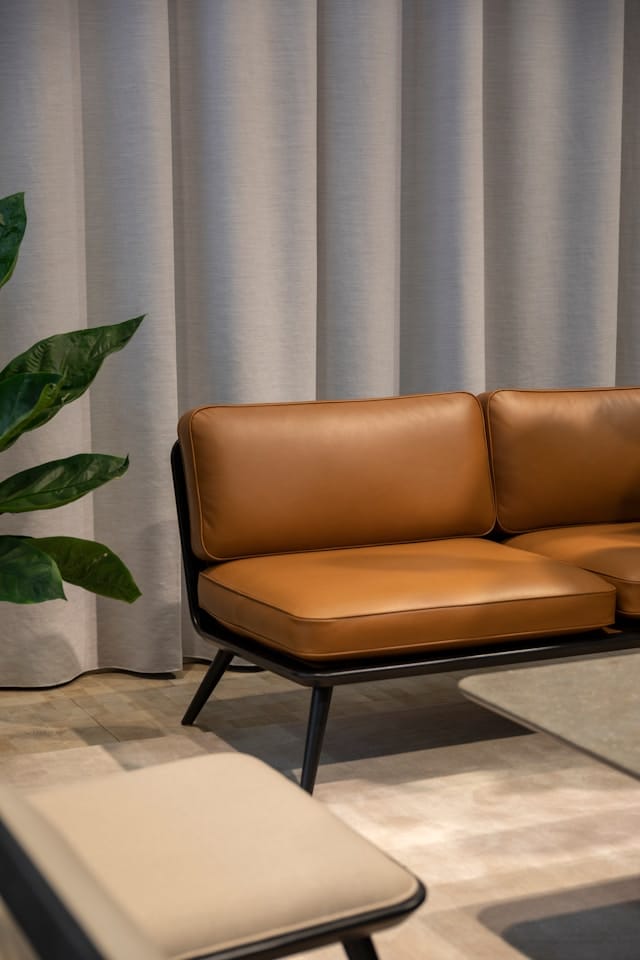
Eliminating the arms from a couch can save you 8 to 12 inches of precious width.
Armless small couches and sofas offer a clean, modern look while maximizing seating space (one of my favorites—I’d love to get one for my place).
They work especially well when placed against a wall or paired with a side table that can serve as an armrest alternative.
Top Armless Sofa Picks:
- 4-Seat Armless Modular Sectional Sofa: Armless design maximizes seating capacity while maintaining a light, open feel in compact living rooms.
6. The Low-Profile Bench Sofa
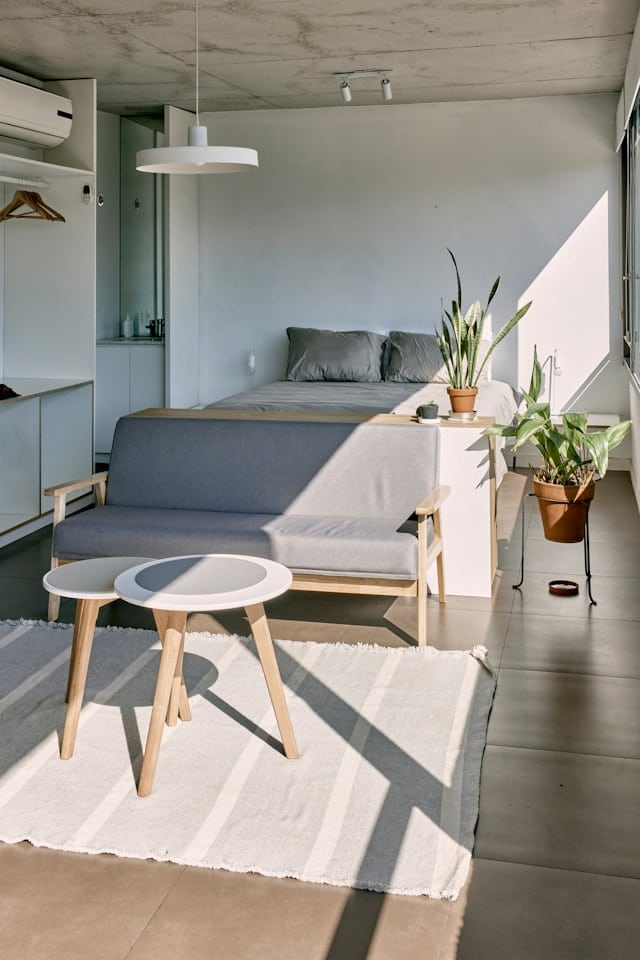
These sleek, low-profile bench sofas are modern designs that sit close to the ground with minimal backs and streamlined silhouettes.
The low profile makes ceilings appear higher, and rooms feel more spacious. They’re perfect for minimalist aesthetics and contemporary spaces.
Explore These Low-Profile Bench Sofa Options:
- Bench sofa with storage: Lift-top design hides blankets, books, and clutter.
- Caned Back Bench sofa: Features trendy cane detailing that adds texture and a breezy, bohemian vibe to your space without overwhelming it.
- 44 Inch Tufted Leather Bench Sofa: Compact 44-inch leather bench with elegant tufting brings sophistication to the living room.
7. The Classic Loveseat
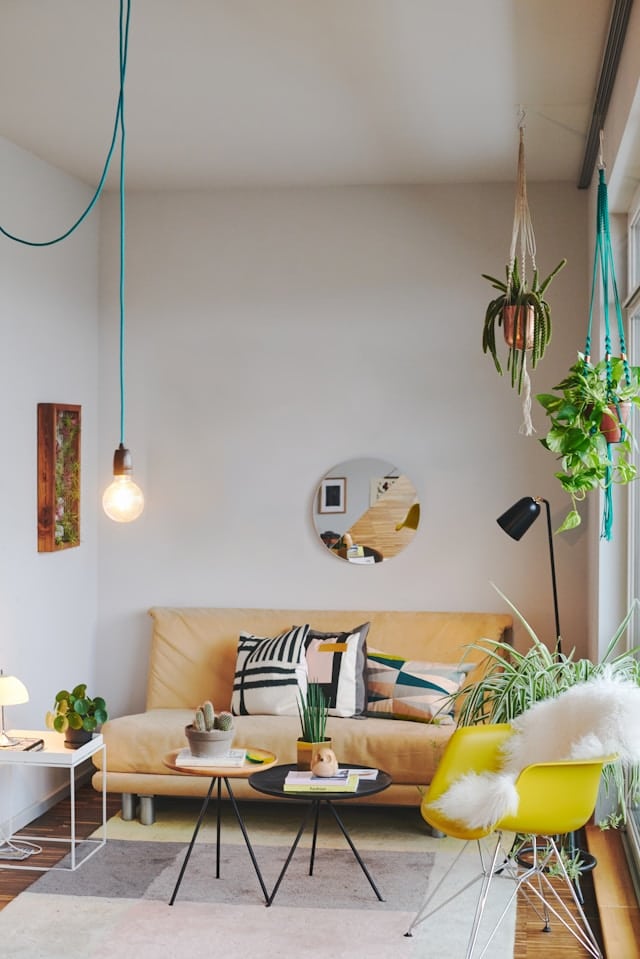
I have to add the classic loveseat option for you.
There’s a reason loveseats have been a small-space staple for generations.
At roughly 60 inches wide, they provide comfortable seating for two people without overwhelming a compact living room.
I think it goes with any design style, from traditional to contemporary.
A few relevant classics loveseat:
- MORABO Loveseat: Classic two-seater with plush cushioning and timeless appeal.
- LINANÄS Loveseat: Features a low-profile design with clean lines that won’t visually crowd smaller rooms while still providing comfortable seating for two.
- Modern Loveseat Couches for Living Room: Sleek contemporary styling meets compact dimensions. Small couch for living room.
- 2 Seater Love Seat Couch for Small Space: Purpose-built for tight quarters, this loveseat delivers full comfort without taking up the space of a standard sofa.
8. The Chaise Lounge
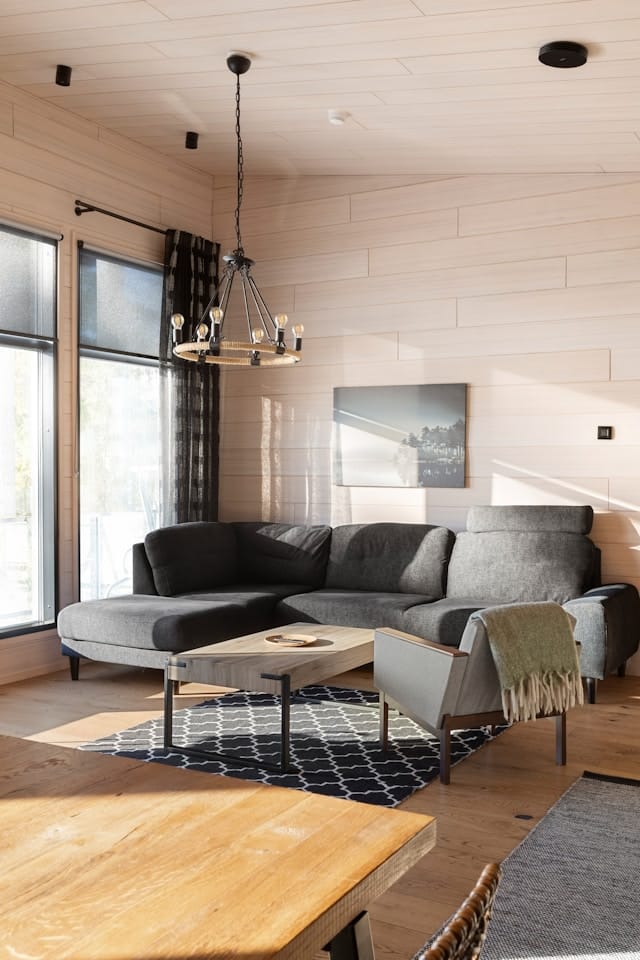
If you love to stretch out but don’t have room for a full-length sofa, a chaise lounge offers the perfect compromise.
You get the luxury of putting your feet up without the bulk of a three-seater couch.
Position it in a corner or against a wall to maximize floor space.
Best Chaise Lounge picks:
- Triple Tree Chaise Lounge Chair: Ergonomic curved design perfect for reading nooks or bedroom corners.
- FINNALA Chaise: Deep, sink-in comfort with durable upholstery that stands up to daily lounging and afternoon naps.
- JÄTTEBO Chaise module Chaise Lounge: Modular piece that works solo or connects with other JÄTTEBO sections for flexible room layouts.
9. Small L-shaped couches for small spaces
I would like to say “the corner-hugging small L-shaped sectional”.
Please don’t eliminate sectionals entirely—small-scale L-shaped sectionals can actually maximize seating in awkward corners.
By fitting into a corner, these designs use space that might otherwise go to waste by providing more seating than a standard loveseat.
A few L-shaped small Couches and Sofas suggestions:
- Home 4-Seat Corner-Hugging Modular Sectional Sofa: Smart corner design maximizes every inch of your room while seating four comfortably.
- Modern Sponge L-Shape Sectional Sofa: Plush sponge cushioning in an L-configuration.
- Small Corner Sectional Sofa Couches for Living Room: This petite corner sectional proves you don’t need a large space to enjoy the comfort and style of sectional seating.
Smart Design Details: The Smallest Changes Make the Biggest Impact
10. The Tufted couch Back
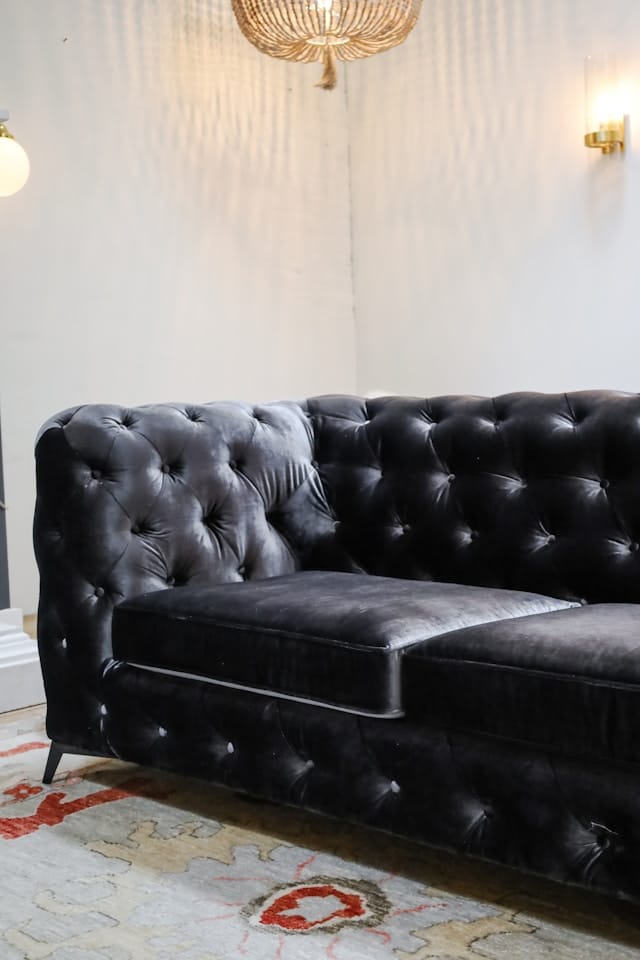
Button tufting adds interesting design details and depth to a couch back without adding physical bulk.
The dimensional quality of tufting creates shadows and highlights that make the piece more engaging to look at, elevating even a simple, small couch into a statement piece.
Some options to consider for Tufted small Couches and Sofas:
- Modern Tufted Back Sofa: Button-tufted backrest adds classic elegance to contemporary spaces.
- 65″ Modern Tufted Design Loveseat Sofa: This 65-inch loveseat combines sophisticated tufting with a compact length that fits perfectly in apartments or cozy dens.
- Tufted Sofa: Timeless tufted detailing creates visual interest without overwhelming small rooms.
11. Wood-Framed Couches
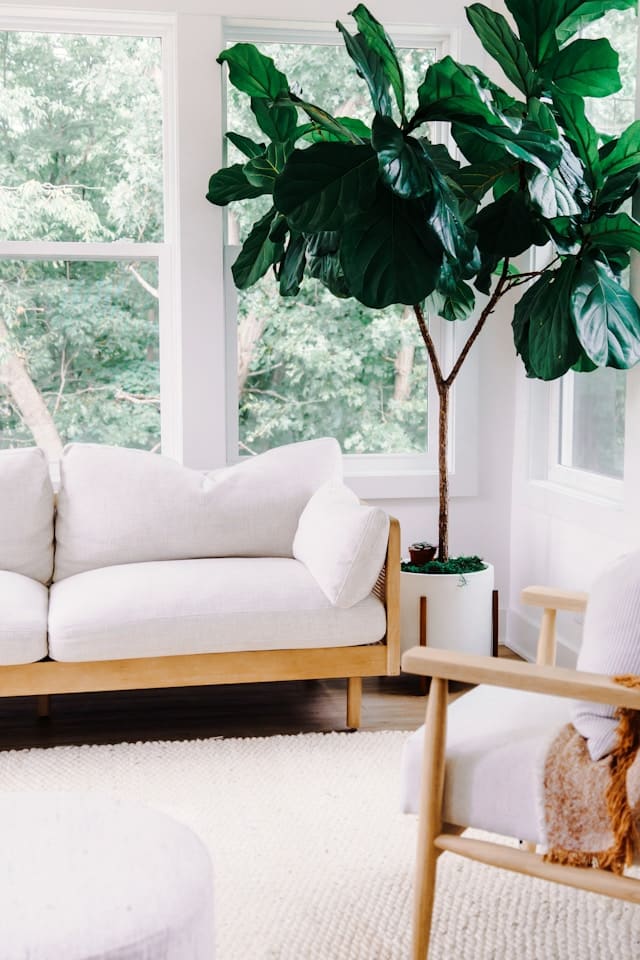
Couches with exposed wooden frames (I personally like to add in my designs) have a lighter visual weight than fully upholstered designs.
The contrast between the wood and upholstery breaks the visual, which makes the piece feel less massive.
Look for Scandinavian-inspired designs or mid-century modern styles that showcase beautiful wood frames.
Check out these options for wood frame small Couches and Sofas:
- Wood Frame Loveseat: Exposed wood frame adds warmth and mid-century charm.
- 4-seater wood frame sofa: Natural wood construction brings organic texture while comfortably seating four for movie nights or gatherings.
- 3-Seat Sofa with Solid Wood Frame: Durable solid wood frame ensures longevity and a refined aesthetic.
12. Mid-Century Modern Design
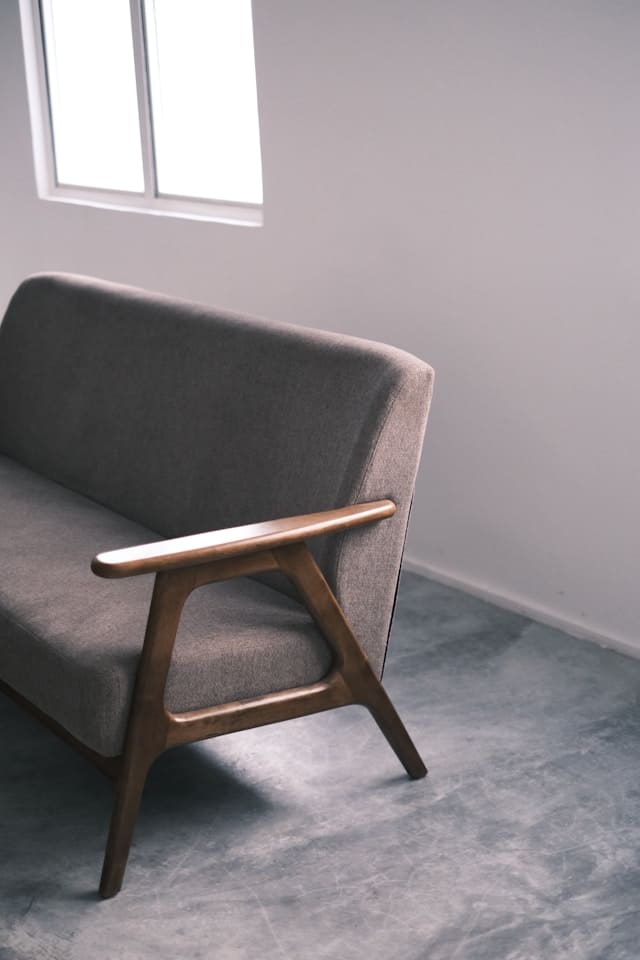
Do you know, speaking of mid-century modern, these designs are inherently small-space friendly.
They typically feature slim profiles, tapered legs that lift the couch off the floor, and clean lines without excessive ornamentation.
The iconic designs were often created for smaller postwar homes, making them perfect for today’s compact apartments.
Browse These Mid-Century Modern couches for small spaces:
- 65″ Mid Century Modern Loveseat Sofa for Small Spaces: At 65 inches, this retro loveseat delivers mid-century style without dominating your living room.
- Mid-Century Modern Beige Sofa: Neutral beige with tapered legs makes this Walmart find perfect for any living room (small couch for living room).
- Mid-Century Solid Wood Frame Sofa: Exposed wood frame offers lasting durability and timeless vintage appeal.
13. Velvet and Textured Fabrics
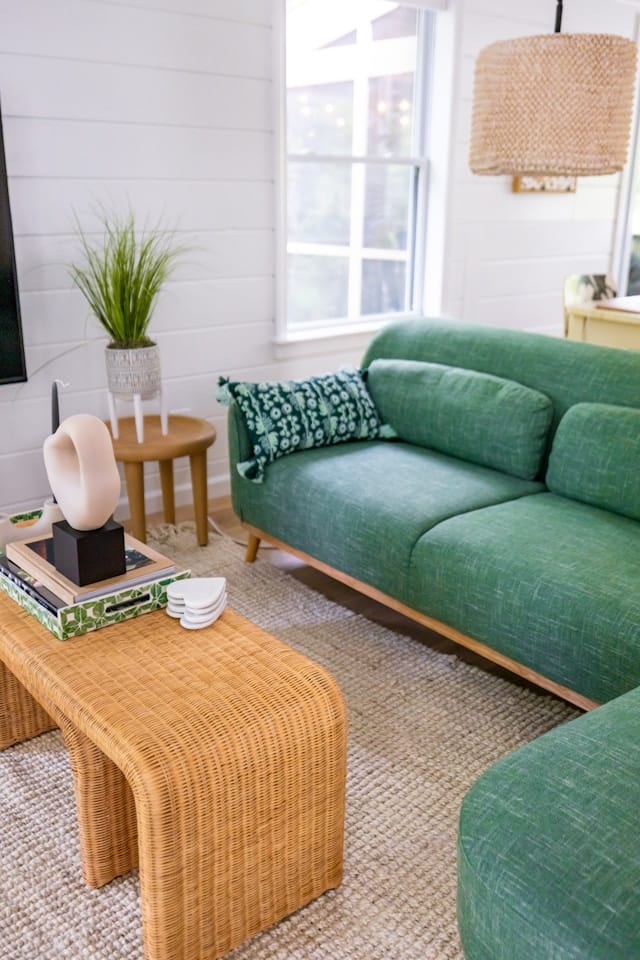
Velvet or other dimensional fabrics are the best choice for adding a luxurious touch.
It can make a small couch feel special and high-end without adding physical bulk.
The way velvet catches and reflects light adds depth and interest, making your couch a focal point in the best way possible.
Consider these options:
- Modern Upholstered Sofa Couch: Clean lines and plush upholstery create an inviting spot for relaxation.
- Comfortable Textured Fabrics Convertible Sofa Bed for Living Room: Textured fabric adds visual depth while the easy conversion from sofa to bed makes hosting guests an easy breeze.
- Modern Minimalist 3-Seater Sofa: Streamlined three-seater that embodies less-is-more design philosophy with textured fabric.
14. Small faux leather couches for small spaces
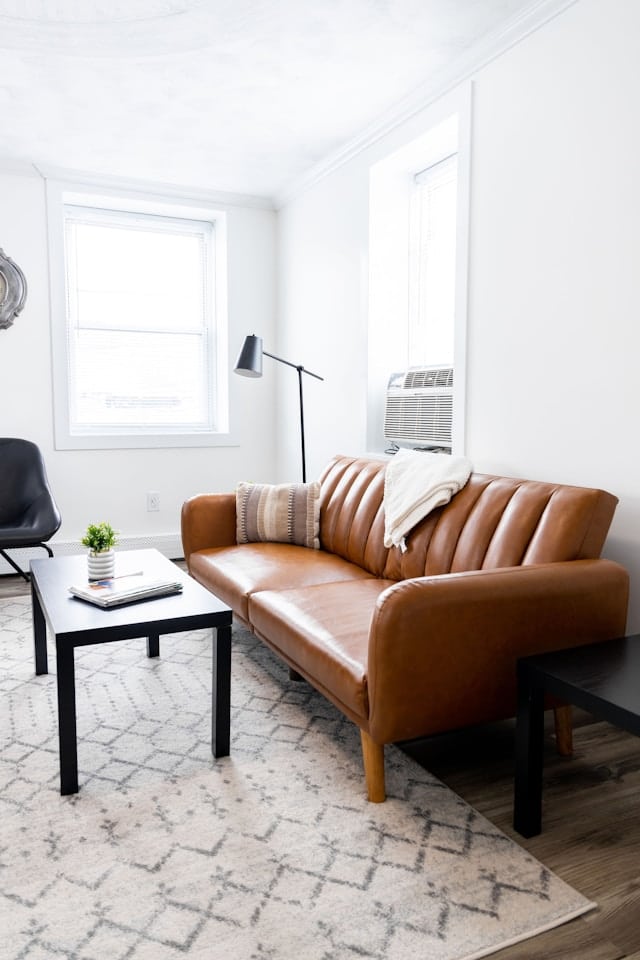
Common friends! No couch guide is complete without mentioning leather and faux leather.
Leather (more leaning towards faux leather as a vegan) and faux leather upholstery reflect more light than fabric, making these couches feel less visually dense.
A cognac or caramel leather loveseat can anchor a room without overwhelming it.
The material is typically easier to clean than fabric—a bonus in small spaces where spills are harder to avoid.
Check out these faux leather couches for small spaces:
- Faux Leather Sofa Couch with Metal Legs: Sleek faux leather paired with modern metal legs for an industrial-chic look that’s easy to clean.
- IKEA MORABO faux leather Sofa: Durable faux leather in IKEA’s classic MORABO design. Perfect small couches for small spaces.
- Faux leather Loveseat Sofa: Low-maintenance faux leather makes this loveseat ideal for busy households or pet owners who want style without the worry.
Non-Traditional and Creative Seating: Beyond the Sofa
15. The Daybed
Daybeds blur the line between couch and bed by making them ideal for studio apartments or multi-purpose rooms.
During the day, pile on throw pillows and use it as a sofa. At night, remove the pillows, and it’s a comfortable sleeping bed.
Many daybeds also come with storage drawers underneath.
16. Couch Plus Oversized Ottoman
Instead of a traditional coffee table, pair your small couch with a large upholstered ottoman.
The ottoman can serve as a footrest, extra seating when you have guests, and a coffee table when topped with a tray.
Some designs even include hidden storage inside!
17. Built-In Seating
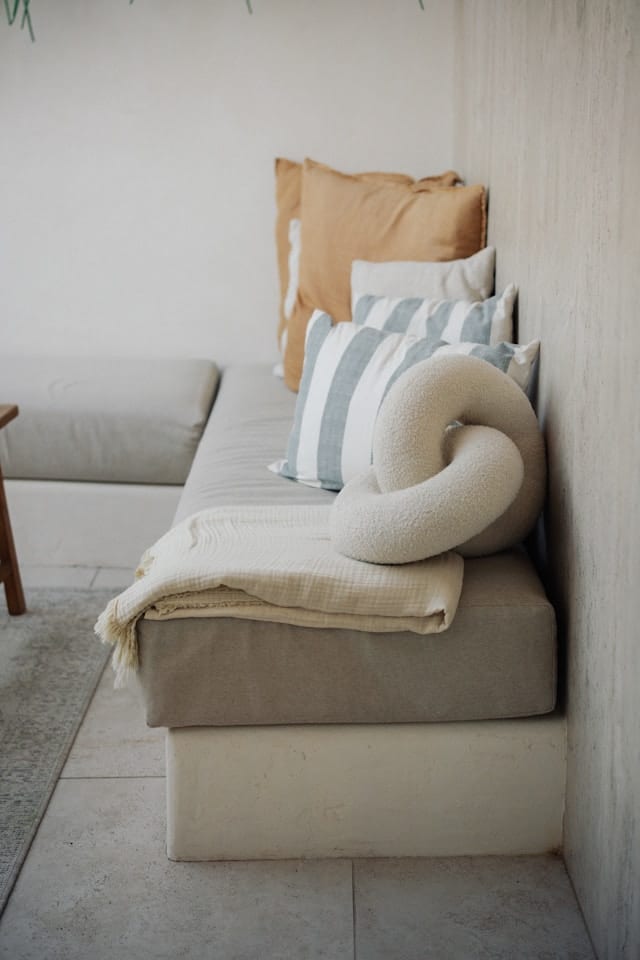
If you own your space or have a generous landlord, consider built-in bench-style seating along one wall.
Add cushions and throw pillows on the built-in seating to make it comfortable.
Built-in bench feels custom and high-end while maximizing every inch of available space.
In addition, you can include storage underneath.
18. The Bench with Cushions
A long upholstered bench (which you can DIY, if you are DIY enthusiastic) with loose cushions offers flexible seating that’s easy to move and reconfigure.
You can push it against a wall for a couch-like feel or pull it into the center of the room for additional seating during parties.
The simple design gives you more flexibility and minimal clutter.
If you know DIY things, you can make a foldable bench and store it when not in use.
Placement and Styling Ideas: Beyond the Couch Itself
19. The Floating Approach
The floating approach is pulling your couch a few inches away from the wall, which can actually make your room feel larger.
This “floating” placement creates a sense of flow and intentionality.
The designer secret: It also allows you to place a narrow console table behind the couch for additional storage and display space.
20. The Wall-to-Wall Trick
On the flip side, if you find a couch that fits the exact width of your wall, embrace it.
A wall-to-wall fit creates a custom look that makes your small space feel intentionally designed rather than randomly furnished. Measure carefully before you buy.
21. Vertical Space Utilization
The couch is just one element—and since we are designing a small space, I can’t resist talking about vertical space utilization.
Draw the eye upward with tall, narrow bookcases flanking your couch, or hang artwork in a vertical arrangement above it.
When you emphasize vertical lines, ceilings feel higher, and rooms feel more spacious.
Designing Around the Small Couch
Choosing the right small couch is just the beginning. How you style and furnish the rest of your living room will determine whether your space feels cramped or comfortable.
Coffee Table Alternatives
Traditional coffee tables can overwhelm a small living room.
Instead, consider nested tables that can be separated when needed and tucked together when not in use.
C-tables that slide under your couch are another smart option—they provide a surface for drinks and snacks without taking up permanent floor space.
Stunning Round Coffee Table Decor Ideas
Strategic Lighting
Don’t choose bulky table lamps for side tables.
Instead, use floor lamps that tuck into corners and wall-mounted sconces that free up your tables entirely.
Good lighting is essential in small spaces (I believe for any space).
Best DIY Lighting Fixtures to Brighten Any Space on a Budget
Mirror Placement
Mirrors are a small-space designer’s best friend.
A large mirror placed opposite or adjacent to your couch will reflect light and views, I promise, instantly making your room feel twice as large.
Lean an oversized mirror against the wall for a casual, contemporary look, or hang a gallery wall of smaller mirrors with frames for aesthetics.
Area Rugs: The Small Room Anchor
I can’t believe I almost forgot the area rug! How could I talk about small living rooms and not mention the area rug?
The right area rug can anchor your seating arrangement and define your living space, especially in an open-concept layout.
Use the “float test” rule: your rug should be large enough that all the front legs of your couch and any chairs touch or rest on the rug. This creates a cohesive seating area.
9 Secrets to Choosing The Right Rug for Your Living Room: The Ultimate Guide
This post was all about 21 Smart Small Couches for small spaces Ideas to Maximize Tiny Living Room.
What’s your favorite small-space solution? Have you discovered a clever couch or layout trick that’s transformed your tiny living room? Share your ideas in the comments—your experience might be exactly what another reader needs to hear.
You may also like:
- Best Small Living Room Layout Ideas to Maximise Space
- 19 Stunning Living Room with an Open Kitchen Decor Ideas
- The Best Clever Storage Solutions for Small Living Rooms

